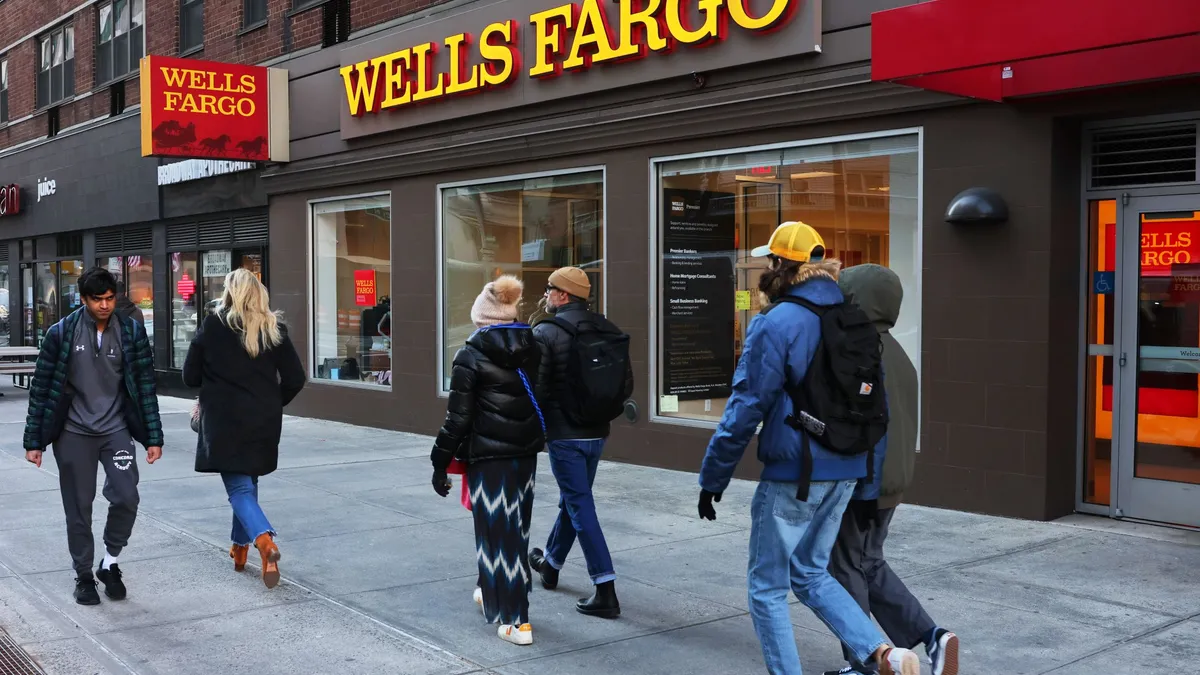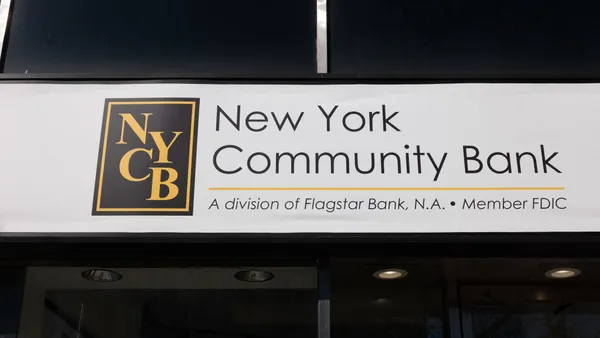The Consumer Financial Protection Bureau has terminated its 2018 consent order against Wells Fargo, leaving two yet to be resolved, including the Federal Reserve’s asset cap, the bank announced Monday.
This marks the 12th consent order closed by Wells Fargo since 2019, and the sixth resolved this year.
“Today’s termination, along with the recent closure of other consent orders, demonstrates that we have completed much of our common risk and control infrastructure work, including work that is required by other orders,” Wells CEO Charlie Scharf said in a statement Monday. “I am proud of the work done by our teams and remain confident that we will complete the work needed to close our other open consent orders. Wells Fargo is a different and stronger company today as we focus on creating long-term value for our customers, clients, communities and shareholders.”
The terminated order concerns the bank's compliance risk management program. The Office of the Comptroller of the Currency terminated a similar order in February – clearing up a multiagency complaint associated with a single issue.
Analysts are viewing the lifting of the CFPB consent order as a signal that the Fed’s asset cap might be lifted sooner rather than later.
“The biggest consent order investors are expecting to be lifted is the Federal Reserve's 2018 cease and desist order that has the asset cap linked to it,” analysts at Royal Bank of Canada wrote in their research note Monday. “In view of the six consent orders being lifted this year and Treasury Secretary [Scott] Bessent's commentary regarding loosening the regulatory ‘corset’ around the banking system, we believe the Federal Reserve's 2018 order could be lifted in the 2Q25 and possibly real soon.”
Meanwhile, Piper Sandler analysts noted the “increasingly rapid resolution pace” of Wells orders and linked improved compliance and risk management to the potential lifting of the asset cap, adding that regulators now appear comfortable with the bank's approach.
A Wells spokesperson, however, declined to comment on the asset cap.
The other remaining consent order dates to 2015 regarding Gramm-Leach-Bliley Act violations and was brought by the OCC, the spokesperson confirmed.
Wells Fargo also has a formal agreement (an enforcement action, but not a consent order), issued by the OCC last September, related to the bank’s anti-money laundering efforts, the spokesperson added.
OCC settles with former Wells auditors
The OCC, for its part, disclosed Friday it has settled with two former Wells Fargo auditors in connection with the lender’s nearly decade-old sales practice misconduct.
The OCC issued a $100,000 civil penalty against David Julian, former chief auditor, and a $50,000 civil penalty against Paul McLinko, former executive audit director at the bank, and personal cease-and-desist orders to both former executives.
The order resolves a 2020 investigation by the OCC that engulfed several Wells executives in the 2016 scandal in which members of the bank’s sales team enrolled customers in services and products without their knowledge to meet certain incentives.
The OCC asserted Julian failed to plan and manage audit activity that would detect and document sales practices misconduct. Further, Julian failed to adequately escalate the sales practices misconduct, the regulator said in January, when it initially fined the ex-executive $7 million.
The OCC handed McLinko a $1.5 million fine in January on similar grounds, additionally citing his failure “to maintain professional independence from the Community Bank.”
Wells Fargo declined to comment on the OCC’s settlement with Julian and McLinko.












